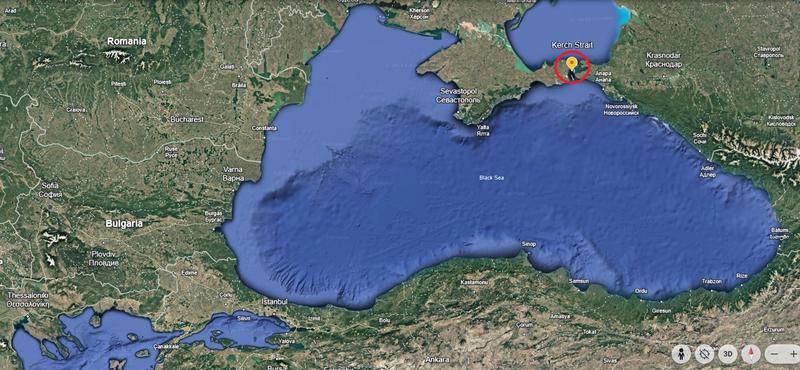The Ministry of Environment and Water continues to monitor the situation caused by the oil spill near the Kerch Strait
27 Dec, 2024 | 15:04
- Russia declared a federal state of emergency over Black Sea oil spill
- Russian scientists criticize cleanup efforts after spill
Russia has declared a state of emergency at the federal level in connection with the fuel oil spill in the Black Sea after an accident involving two tankers, BTA reported, citing information from TASS with a source from the Ministry of Emergency Situations.
Russian scientists have criticized efforts to clean up the spill, saying that there was a lack of sufficient equipment, The Guardian reported.
On December 15, two Russian oil tankers, Volgoneft-212 and Volgoneft-239, were hit by a storm in the Kerch Strait, with one sinking and the other one running aground.
The Kerch Strait separates the Southern part of Russia from the Ukrainian peninsula of Crimea, which Russia annexed in 2014.
According to Russian authorities, the ships were carrying 9200 tons of fuel oil, about 40% of which was spilled into the sea.
The spill covered the sandy shores around the resort of Anapa with fuel oil and caused serious problems for the fauna in the area, including seagulls, dolphins, and whales.
“Given the current situation and the reports we have received, I propose to classify the emergency situation caused by the tanker shipwreck in the Kerch Strait as a federal emergency and establish a federal level of response,” said Russian Emergencies Minister Alexander Kurenkov. He also explained that this “will allow for the attraction of additional forces and resources for federal executive bodies and state corporations, as well as for providing the necessary financial assistance to the affected entities from the Reserve Fund of the Russian Federation.”
According to the Russian Emergencies Ministry, the coastal monitoring zone in the Krasnodar Territory currently extends over 220 kilometers.
Thousands of volunteers have been mobilized to remove the oil-contaminated sand from nearby beaches. But scientists say the volunteers lack the necessary equipment.
“There are no bulldozers, no trucks. There are practically no heavy machinery,” Viktor Danilov-Danilyan, scientific director of the Institute of Water Problems of the Russian Academy of Sciences and former Russian environment minister in the 1990s, said during a press conference.
According to him, the volunteers had only “shovels and useless plastic bags that tear. While they are waiting for the bags to finally be collected, storms come and they end up back in the sea. This is unthinkable!”
Public criticism of the authorities is rare in Russia.
Up to 200 000 tons of sand may have been contaminated with oil, Russia’s natural resources minister said on Monday. Nearly 30 000 tons have already been collected, Krasnodar Krai Governor Veniamin Kondratiev said on Wednesday.
Sergei Ostakh, a professor at the Russian Academy of Natural Sciences, said the oil could soon reach the shores of Crimea and called for swift action.
The oil spill potentially killed 21 dolphins, the Delfa dolphin rescue center said, although further tests are needed to confirm the cause of their deaths.
While there is no risk that the oil pollution will reach and threaten Bulgarian territorial waters in the Black Sea, the Ministry of Environment and Water will continue to monitor the situation and its consequences.
